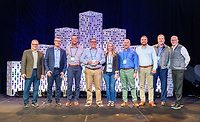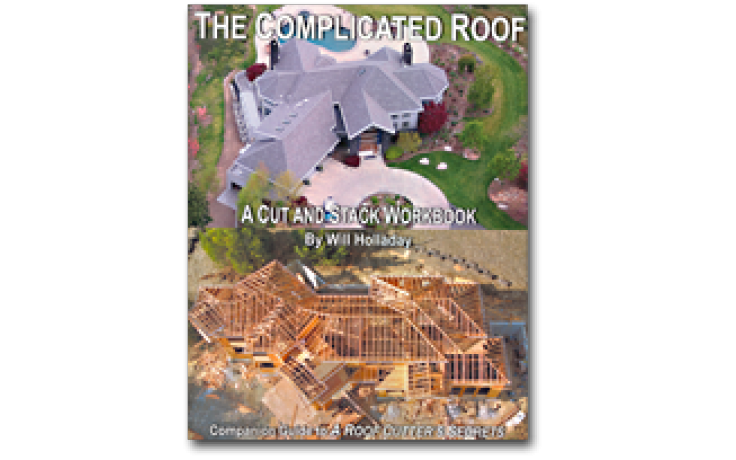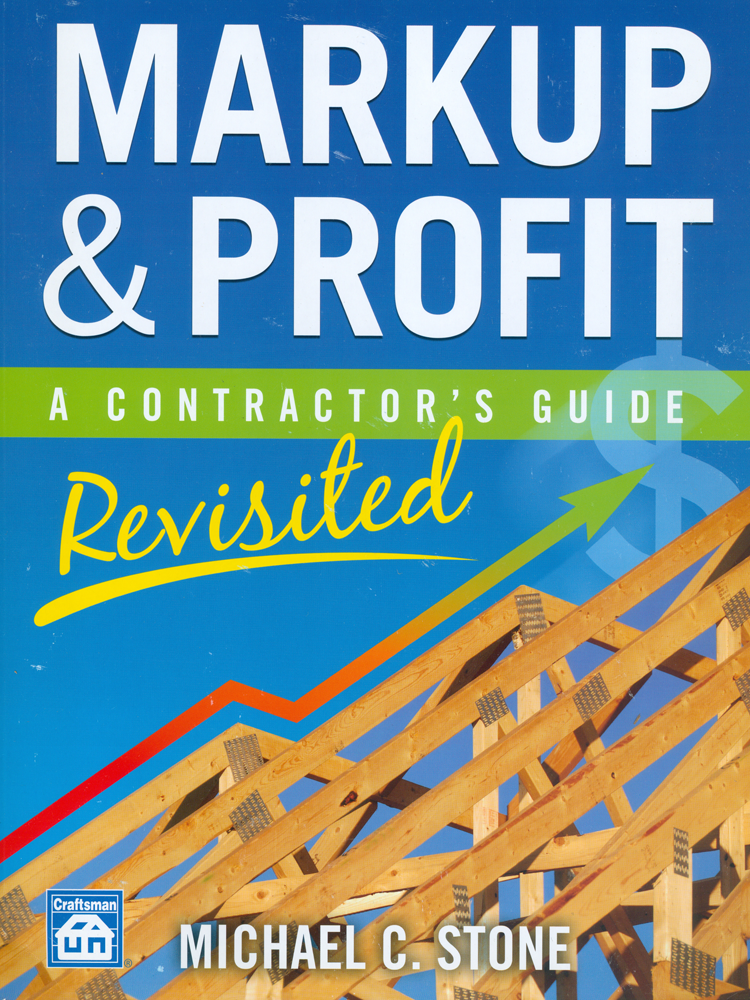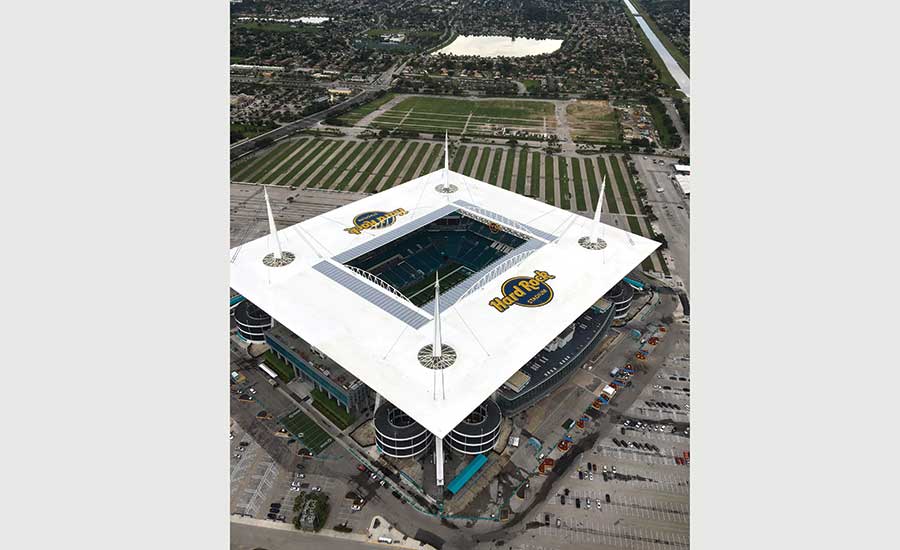SRG Roofing Continues its Rapid Trajectory Upward Based on a Culture-First Philosophy
The Case for Culture
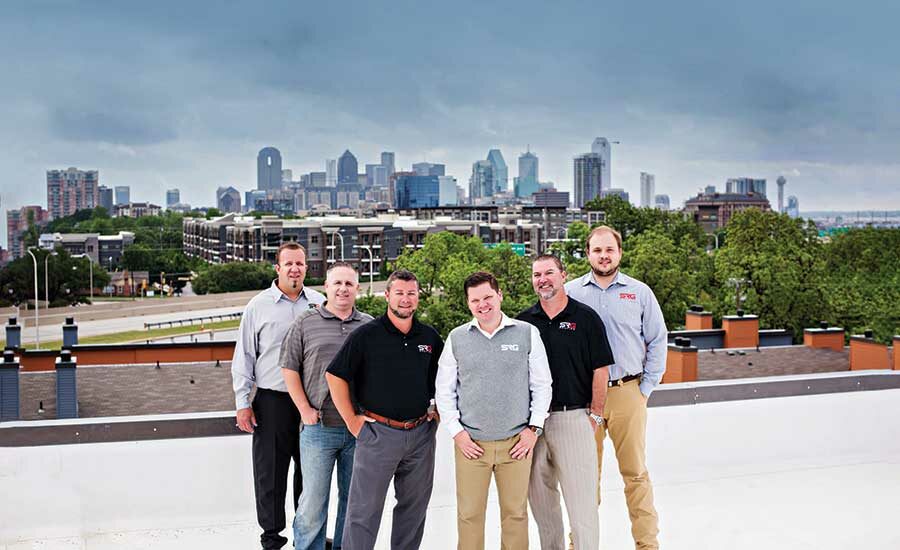
SRG Roofing LLC is based in Dallas but has a national reach in the commercial and multi-family roofing markets that generated roughly $30 million in revenue last year. Pictured here underneath the Dallas skyline are: (from left) Jeramie Jones, JR Pishny, River Tunnell, President Kevin Kirkwood, Scott Page and Hayden Lindley. Photo by Cynthia Holsclaw.
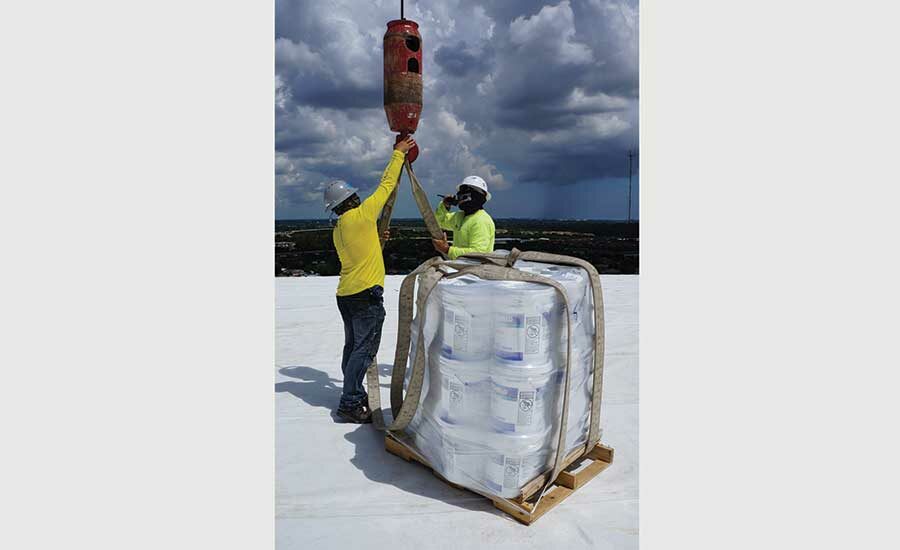
SRG Roofing technicians unload a pallet of roof-coating products atop the canopy roof of Hard Rock Stadium in Miami. Photo courtesy of SRG.
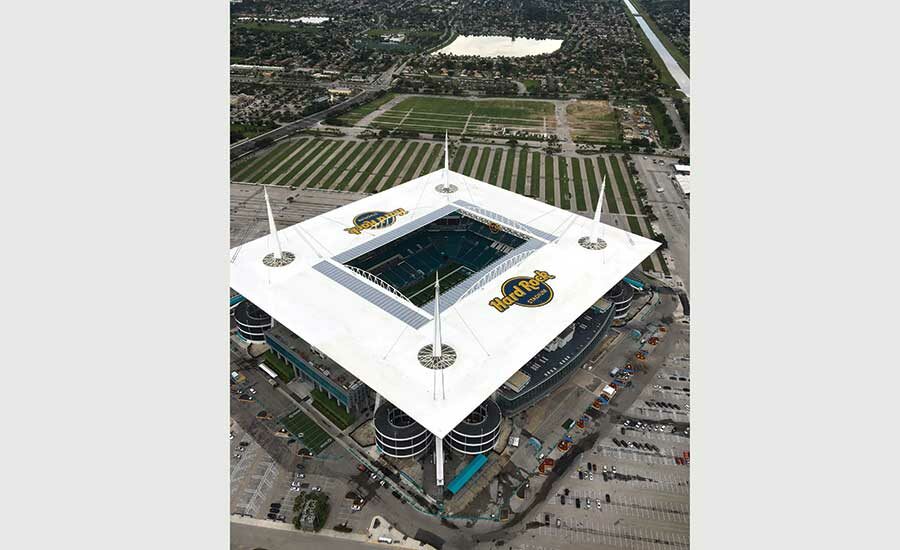
“A lot of other contractors might be a little apprehensive because they don’t have the wherewithal to pull it off,” SRG Roofing Co-owner Steve Bolos said of the coating job atop the Hard Rock Stadium in Miami. “That put us on the map, so to speak, and we’ve been able to carry that momentum into our plan for more major commercial roofing projects.” Photo courtesy of SRG.
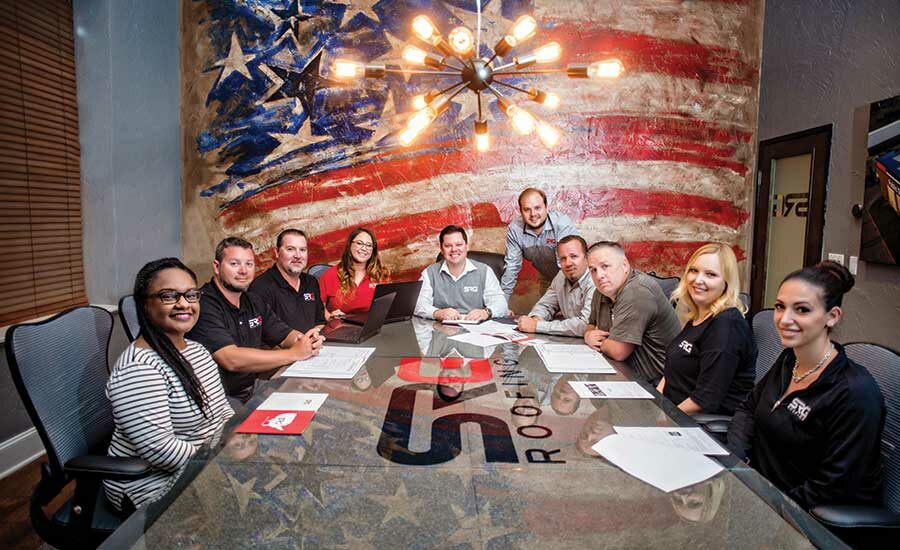
SRG’s collaborative business culture is designed to empower employees to be successful and reinforces the importance of trust, communication and long-term commitment. It’s a point of emphasis for the leadership team, pictured here in a conference room at company headquarters in Carrollton, Texas. Photo by Cynthia Holsclaw.




Kevin Kirkwood was in a career ‘no-man’s land.’ He was getting by as a third-generation roofer with plenty of on-the-job experience and professional drive, but he lacked the advanced degrees and the business acumen to help guide him toward an ascending career path.
It was 2007 — as the slumping economy was on the brink of a deep recession — and the Texas native not only sought a new job to help support himself and his newlywed bride, but one that would have staying power and quench his longstanding dream of entrepreneurship. So he went out and did it. By himself. All on his own.
“I needed a job, as I was kind of in limbo,” Kirkwood, now 39, recalled. “I was too experienced to be a roof technician, but didn’t have the education or degrees to be a project manager. So I started my own company to have work.”
Kirkwood established Signature Renovations Group out of his garage and made a go of it, focusing on roofing and exteriors for small commercial and multi-family properties primarily in Texas.
The work was challenging, and the company experienced moderate success. Yet Kirkwood still sought something more. He craved a better opportunity to reach high levels of business success and to establish a family-business legacy he never got to experience. The right opportunity wouldn’t come for another five years.
Meeting a Mentor
Steven Bolos was getting frustrated. As owner of United Renovations — a national renovation business that served the apartment industry — he was tired of losing business to roofing contractors that offered diversified services.
“A lot of the owners wanted deals with roofers directly, and they were for big dollars,” Bolos said.
In need of a roofing contractor he could trust and bring into the business, he said he met an enthusiastic and hungry Kirkwood at the right time. The two initially met as Bolos searched for a roofing subcontractor on a specific new project. But that meeting turned into a full-blown business partnership.
“He was the answer to my prayers,” Bolos said. “Now I could create a roofing business, and then all of the roofing projects would go directly to the roofing company and we won’t lose.”
The two had common backgrounds and worked hard to earn every bit of success they achieved on their own to that point. They also shared a common bond over their strong religious beliefs, but more importantly, Bolos said, was Kirkwood’s natural ability to lead.
“He just has that ability to get people to follow him,” Bolos explained. “Within just minutes it was clear from our dialogue, eye contact and communication that something was unique, and I sensed there was something more. True entrepreneurs have that sense of ‘more.’”
Both said something “clicked” at that meeting and within a matter of months, the two were business partners, forging a new path to what they hoped would be unprecedented success. The first step was dissolving Kirkwood’s initial company and forming SRG Roofing, LLC in 2012.
Having been in business for decades, Bolos provided the working capital, resources and client base to quickly launch SRG into a national roofing firm.
Kirkwood said he also sensed that the 59-year-old Bolos could be the key to unlocking his untapped potential.
“I always wanted something big, something that left a legacy. And when I met Steven he’d had a national company that was already established in the renovations market, so he became an immediate mentor for me and that mentorship turned into a partnership. With a lot of hard work, and a lot of blessings, we’ve been able to grow at a rapid rate.”
The Way Up
Rapid is putting it lightly. After nearly five years, SRG now has a peak staff of 75 employees in four locations across the country that collectively generated $30 million in revenue in 2016. The record year represented 168 percent growth from 2015 revenue, Kirkwood said.
Headquartered in Dallas, the company started winning jobs in the region’s flourishing construction sector. Always frugal and focused on the big picture, Bolos said reinvesting consistently in the company is a big part of his business plan. They soon expanded SRG’s reach in the markets where United Renovations already had office space, a proven client base and long list of subcontractors to work with, and built the company up. Satellite offices in Colorado, Florida and California — three of the nation’s strongest and highly-competitive roofing markets soon followed.
Neither said they could’ve expected their level of success so fast, but acknowledge they were always very serious about becoming a major player in the national commercial roofing market.
“We didn’t know exactly what the plan was going to be, but what we did know is that we were going to do this together, and go full-force with it,” Kirkwood said.
“Going national was a very difficult process, but I was very focused on it because no one else was doing it the way we were, and I really pushed to make it happen,” Bolos said.
Culture is Critical
Also from the start, the pair shared a vision to build a national commercial roofing company centered on culture — one committed to positively changing and impacting the lives of not only employees, vendors and distribution partners, but the clients and the local communities they serve. They established four core values: accountability, integrity, innovation and passion; and a mission statement, “To be the best we can be by striving for success with significance by changing and impacting the lives of our employees, business partners and communities.”
Bolos, a Detroit native who moved to Dallas in 1980 to start his entrepreneurial career, said that he discovered early on that business partners don’t always act ethically and demonstrate the same values they espouse to live by before deals are struck.
He and Kirkwood said they wanted a company that acted differently. They structured SRG with a synergy that allowed interaction between business units, and in a way that values input from all team members. Good ideas are valued and executed, regardless of who proposes them, they explained.
“When someone comes in the door to work for SRG, we look at how we can help them grow to be the best that they can be,” Bolos explained. “We have a very strong culture of honoring teamwork and service. Service is a big key to success, because if you serve, then you are blessed,” he said.
When positive culture is infused properly, Kirkwood said the working atmosphere begins to spread along to clients and business partners — which is really what differentiates SRG from others.
Kirkwood said he and Bolos couldn’t have pulled off such rapid growth without the help — and trust — of major manufacturers in the industry. Among the first was GAF, which, “Took a chance on us when we first started out. When no one else would,” Kirkwood explained.
The relationship with GAF is still strong today, as the roofing company has proven the ability to maintain high standards while growing rapidly.
“They’ve proven to have the utmost integrity in everything they do,” said Tim Doyle, GAF’s senior commercial territory manager for north Texas. “I don’t know how much of a “chance” I really took on them. Their trajectory was pointing upwards from the beginning.”
Constant communication with the client is essential, and the same approach to building trust with vendors and partners is also how the team builds strong relationships with clients.
“We strive to be a firm of trusted advisors and not just another vendor, service provider or contractor. We don’t have salespeople, we have account managers who make it a point to be an advocate for our clients,” Kirkwood said. “We ask a lot of questions and focus on what their needs truly are. Our willingness to partner with our clients no matter how big and challenging or small and basic the project is has proven to be the best way we’ve built and continue to build relationships with our clients.”
In addition to ensuring safety and high quality during the installation process, SRG project managers interact face-to-face with clients or their direct representatives. Communication internally and with the customer is key to not only a successful project but a long-lasting relationship.
Without salespeople, the production managers are essentially the face of the company and their role is critical to SRG’s success, and word-of-mouth marketing. Referrals still lead the way to the majority of new business opportunities, but SRG has a team of full-time employees dedicated to lead generation, and recently partnered with a company to manage the company website and social media platforms.
A national support center located in the corporate office in Carrollton, Texas, just outside of Dallas, provides and serves the regional offices with critical business services such as human resources, finance, project coordination, administration, IT, marketing, and accounting. Kirkwood said this business model allows each of the regional leaders and their respective teams to focus on business development, operations and overall growth. Each region has its own service and maintenance department.
On the Inside
SRG’s leadership also places emphasis on positive culture internally. It’s a continuious process that takes work and employee ‘buy-in.’ But it also reinforces the importance of trust, communication and long-term commitment.
The company provides personal time off, health benefits — including a $100,000 life insurance policy and 401k. More importantly, Kirkwood said, is the personal touch they try to provide for each and every member of the team, regardless of the role.
Experts in sales and customer service are brought in to train employees in the field and the offices in multiple markets. The company also pays for higher education, in some cases, for employees striving for traditional or advanced academic degrees, officials said.
“As leaders we have a responsibility to provide and create an environment for our team to be successful,” Kirkwood said.
Employee-appreciation lunches occur regularly and staff from all regions are flown in to Dallas to attend annual Christmas dinners. Other incentive programs have also proved successful.
“Making the effort to bring everyone together plays a big part in our culture,” Kirkwood explained. “Last year, we set companywide goals in place, and when we achieved those goals we flew the entire staff to Vegas over the weekend to celebrate. Each team member brought their spouse or a guest, and we had a great time.”
Safety is also a particular focus on jobsites. Employee schedules include regular safety instruction, continuing education courses with manufacturing partners, and monthly webinars on roofing systems and the installation process. Each project is assigned a project manager, superintendent or lead foreman to ensure safety compliance, customer service and quality control.
Written safety programs specifically designed for each jobsite are implemented weekly and often times daily. Kirkwood said the company also partnered with STC, a third-party safety consultant that publishes monthly safety newsletters company wide. The firm also provides jobsite safety inspections and audits, emphasizing that employee safety is among SRG’s most important investments.
The ‘Super Bowl’ of Roof Jobs
Both the commitment to culture and safety were on display when SRG landed its most high-profile project to date at the Hard Rock Stadium in Miami.
The 65,000-plus seat stadium was built in 1987 for $115 million and was known as Joe Robbie Stadium for roughly the next decade. Five corporations have since purchased the stadium’s naming rights, including the Orlando-based Hard Rock International, which spent $250 million for the rights in a complex 18-year deal announced in 2016.
Last year also marked the end of the third and final phase of renovations that reportedly exceeded $500 million.
Currently home to the National Football League’s Miami Dolphins and the University of Miami Hurricanes, the stadium’s size and location in a true global destination city also makes it a perennial contender to host major, high-profile entertainment events both inside and outside professional and collegiate sports.
This year, it hosted a series of International Champions Cup matches featuring the Brazil Men’s National Soccer Team and Real Madrid. Five Super Bowls have been played there since opening, and the stadium will again host one of the world’s most popular sporting events, Super Bowl LIV, in 2020.
As expected, such a large, high-profile project also presented more than its fair share of challenges. The first-of-its-kind job called for applying the Hard Rock logo in an acrylic coating over 31,000 square feet of an existing TPO membrane roof that acts as a canopy over the spectator stands. Led by Southeast Regional Vice President River Tunnell and members of his team, SRG leveraged its strong relationship with trusted manufacturers to win the job, and worked against a very aggressive schedule to finish the milestone project.
“We were faced with an extremely tight deadline as the roof had to be completed by the home opener (in September),” Kirkwood recalled. “In addition to the timeline restrictions, there was the constant rain, wind and other typical weather conditions that come along with working in south Florida. The crew and operations worked around-the-clock in shifts to not only meet the deadline but exceeded the client’s expectations.”
The extra effort proved both internally and externally that SRG was a contender in commercial roofing.
“A lot of other contractors might be a little apprehensive because they don’t have the wherewithal to pull it off,” Bolos said. “That put us on the map, so to speak, and we’ve been able to carry that momentum into our plan for more major commercial roofing projects.”
Looking for a reprint of this article?
From high-res PDFs to custom plaques, order your copy today!






